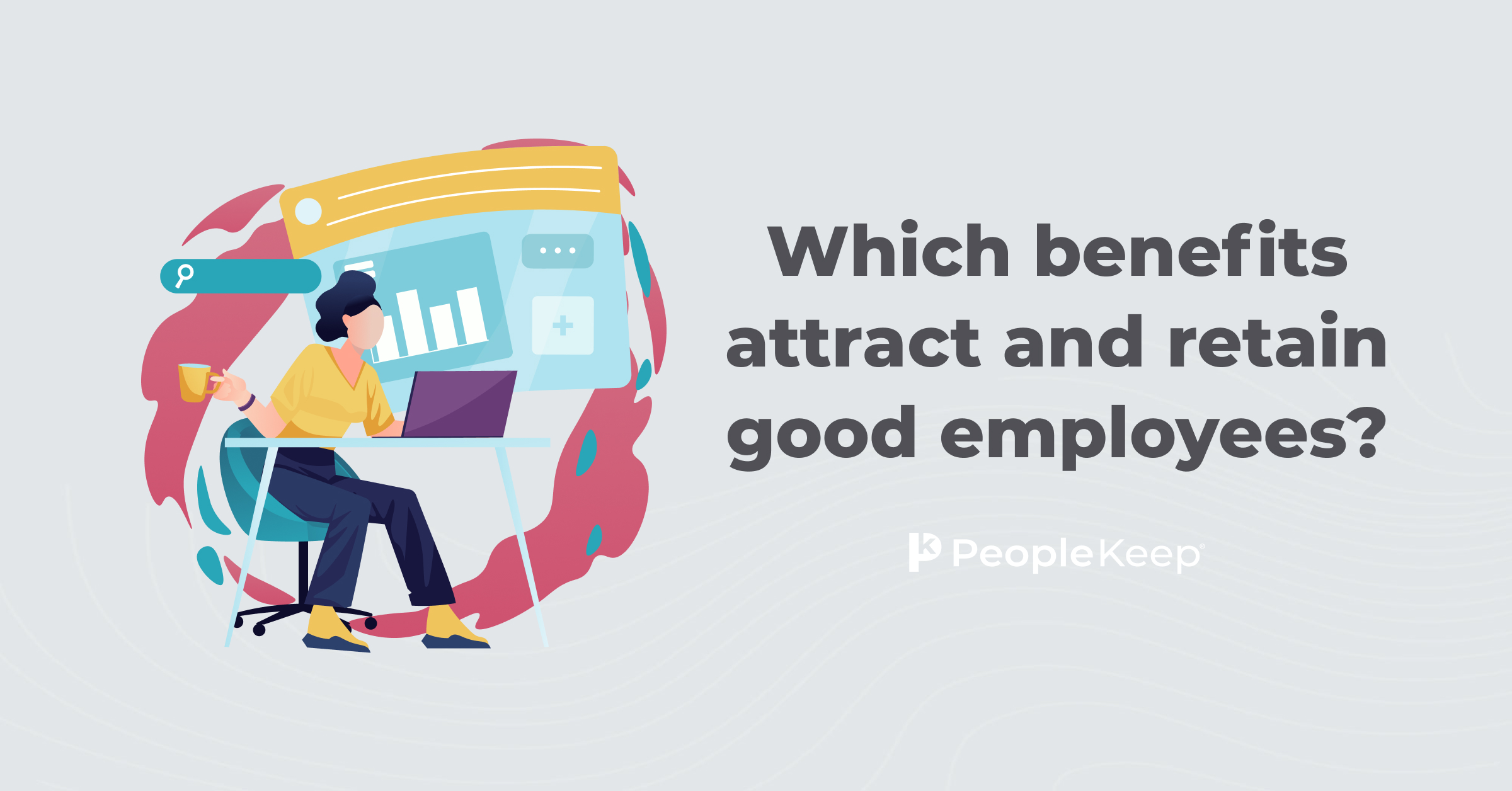What are commuter benefits?
By Chase Charaba on March 14, 2024 at 9:05 AM
If your staff must commute to work, offering a commuter benefit can be an excellent incentive for attracting and retaining your employees. But what are commuter benefits, and how do they work?
This article will explain commuter benefits, how different types of benefits work, and what expenses you can use them for.
Takeaways from this blog post:
- Commuter benefits are perks that help employees offset the cost or time of commuting to and from work daily.
- Offering commuter benefits can improve employee morale and engagement, reduce turnover, and provide unique perks like reducing frustration during commutes.
- Many types of commuter programs available, such as pre-tax commuter benefits that allow employers to provide transportation benefits.
What are commuter benefits programs?
Commuter benefits are employee perks that help your team offset the cost or time of commuting to and from work daily. These benefits are also known as transportation benefits, parking benefits, or employee transit benefits.
Some local governments offer commuter plans to organizations and their employees, but usually, employers establish them as part of a benefits package. These benefits can be pre-tax or taxable, with many organizations electing to follow guidance from the Internal Revenue Service (IRS) for providing qualified transportation benefits.
Why offer commuter benefits?
Employee benefits can help improve employee morale and engagement, reducing employee turnover. When your employees feel appreciated and taken care of, they're more likely to be satisfied with your organization and less likely to look for a new job.
They also help to attract employees. PeopleKeep’s 2022 Employee Benefits Survey found that 82% of employees said an employer’s benefits package impacts whether they accept a job. By offering additional perks like commuter benefits, you can more easily attract top talent.
Many employees value commuter and transportation benefits. A 2023 Newsweek1 poll found that 58% of respondents believe employers should pay for commute costs.
Transportation benefits also provide unique perks, such as the following:
- Reducing frustration during commutes: They allow your employees to avoid traffic congestion with transit passes, parking hassles with parking passes, and other benefits.
- Helping employees financially: Paying for part or all of your workers’ transportation costs helps them to be able to afford gas, transit passes, or parking. Analysis from Clever2 found that the average commuter spends more than $8,000 annually (or 19% of their income) on commute costs.
- Reducing your environmental impact: Many consumers and employees care about reducing their environmental impact, especially Millennials and Gen Zers. According to the United Nations3, moving from cars to public transportation can reduce up to 2.2 tons of carbon emissions per individual per year. By offering carpooling, transit passes, or other alternatives to driving, you can reduce your organization's carbon footprint, which can appeal to more environmentally-conscious customers and job applicants.
How do commuter benefits work?
There are many types of commuter programs available. Each of these programs works differently from the next. Some allow you to provide upfront benefits while you can reimburse your employees for eligible expenses with others.
Pre-tax commuter benefits
Many cities and counties allow workers to purchase public transit cards or passes on a pre-tax basis. Additionally, the IRS allows employers4 to provide commuter benefits with pre-tax dollars for qualified expenses. You can provide these benefits directly or through a reimbursement arrangement.
If you opt to reimburse employees tax-free for their transportation expenses, you need to substantiate those expenses with receipts or invoices.
You can provide or reimburse employees for the following expenses tax-free:
| Transportation expense | Tax-free contribution limits | Notes |
| A ride in a commuter highway vehicle | Up to $340/month in 2026 (combined with transit pass allowances)5 | The highway vehicle must seat at least six adults in addition to the driver, with your employees occupying at least half of the seats. |
| Transit passes | Up to $340/month in 2026 (combined with commuter highway vehicles) |
Transit passes must be for mass transit expenses or vehicles that seat at least six adults, including buses, rail, and ferries. Reimbursements are only tax-free if a voucher isn't available for you to distribute to employees. You can't provide cash reimbursement for transit expenses unless you substantiate expenses with receipts. |
| Qualified parking | Up to $340/month in 2026 |
Qualified parking expenses only include parking on or near the location of your workplace or somewhere your employees can commute using mass transit or carpools, like a park-and-ride. You can’t provide tax-free benefits for parking near employees’ homes. |
| Mileage reimbursement | $0.70 per mile in 2025 for business purposes | You can also reimburse employees for the mileage they drive between two places of work or other business functions, not from their home to work. |
Previously, you could reimburse employees for bicycle commuting expenses, but the IRS suspended its tax-free status in 2017 for tax years through 2026.
The IRS considers any amount greater than the $340 per month limit for qualified transportation benefits as taxable income.
Taxable commuter benefits
While the IRS and local governments generally only allow qualified commuter benefit purchases for public transportation, parking, and vanpooling, you can provide other commuter benefits.
The IRS considers the commuter benefits below as taxable benefits:
- Carpooling perks
- Use of a company vehicle
- Ride-share services, such as allowances for Uber or Lyft
- Toll reimbursement
- Vehicle maintenance allowance
- Bicycle maintenance allowance
- Fuel cards or gas reimbursement (as a perk)
Am I required to offer commuter benefits to my employees?
While there are no federal obligations to provide benefits to commuters, some state and local laws require employers to offer commuter benefits to their workers.
In the table below, we list the states and cities that require commuter benefits.
|
Place |
Summary |
Ordinance |
|
Berkeley, California |
Any business with ten or more employees must offer its staff a commuter program that encourages employees to use public transit, eligible vanpool services, or bicycles. |
TRACC Berkeley Commuter Benefits Program6 |
|
Chicago and surrounding areas |
As of January 2024, Illinois requires employers with 50 or more full-time employees located within a mile of a transit route in the six-county Chicago Regional Transit Authority area to offer pre-tax commuter benefits to employees. Specifically, this includes transit passes, transit tokens, fare cards, and vouchers. The RTA area includes all of Cook County and the townships of Warren, Grant, Frankfort, Wheatland, Addison, Winfield, Downers Grove, Lisle, Naperville, Dundee, Elgin, St. Charles, Geneva, Batavia, Aurora, Zion, Benton, Waukegan, Avon, Libertyville, Shields, Vernon, West Deerfield, Deerfield, McHenry, Nunda, Algonquin, DuPage, Homer, Lockport, Plainfield, New Lenox, Juliet, and Troy. |
Illinois House Bill 2068; Public Act 103-02917 |
|
Washington, D.C. |
Any organization with 20 or more full-time employees must offer commuter benefits. This includes subsidies, pre-tax benefits, or transit passes. |
Sustainable D.C. Act of 2014 |
|
Los Angeles |
Any organization with 50 to 249 full-time employees must offer pre-tax benefits for public transportation costs to full-time employees. |
Assembly Bill No. 2548 |
|
Any organization in the state of New Jersey with 20 or more full-time employees must offer pre-tax elections for public transit costs. |
New Jersey Commuter Benefit Ordinance |
|
|
New York City |
Any organization with 20 or more full-time employees must offer pre-tax benefits for public transportation costs or vanpools. This applies to any employees who work in NYC, even if they don't reside there. |
NYC Commuter Benefits Law8 |
|
Philadelphia |
Employers with 50 or more employees must offer commuter benefits for mass transit and/or bicycle commuting. |
Amendment to Title 9 of The Philadelphia Code9 |
|
Richmond, California |
Any business with ten or more employees who work an average of at least ten hours per week must offer either pe-tax benefits, employer-paid benefits, or employer-provided transit. |
Richmond Commuter Benefits Ordinance10 |
|
Seattle |
Any organization with 20 or more full-time employees who work in the city must offer pre-tax benefits for public transit costs. |
Seattle Commuter Benefits Ordinance11 |
|
San Francisco Bay Area |
Any organization with 50 or more full-time employees must offer commuter benefits. |
Bay Area Air Quality Management District’s Bay Area Commuter Benefits Program12 |
Additionally, some local jurisdictions provide tax breaks and incentives to organizations that provide these benefits. For example, Washington state provides a tax credit to employers who provide a trip reduction incentive, such as ride-sharing, public transportation, car sharing, and non-motorized commuting. This can give employers up to $60 per employee per year.
Do commuter funds expire?
In most cases, employers or third-party benefit administrators decide whether their commuter funds expire yearly or if the amount is allowed to roll over. However, this is only the case with taxable benefits, as the IRS only allows up to $340 per month for pre-tax transportation benefits and $340 for qualified parking expenses.
How to offer commuter benefits to your employees
If you're looking to help your employees with the cost of transportation, you have a few options. You can use a local government plan, vouchers, or pre-tax deductions to pay for your employees' transit benefits. The IRS also allows for reimbursement of qualified transportation expenses using tax-free dollars. However, going this route can limit the eligible monthly expenses you can reimburse your employees for.
Another option for providing a flexible commuter benefits program is to offer a commuter and transportation employee stipend. You can reimburse your employees for any transportation expenses with a stipend, including those not listed in Publication 15-B, as a taxable benefit. You can also set up stipend reimbursement to be tax-free for qualified expenses. You should consult with a tax professional to determine the taxability of your commuter benefits program.
You can reimburse employees for the following transportation expenses with a transportation stipend:
- Parking fees
- Transit passes and fares for commuter rail, light rail, ferries, bus service, shuttles, and more
- Gas expenses
- Ride-sharing services
- Tolls
- Vanpool expenses
- Bike or e-scooter sharing programs
- Personal vehicle maintenance
- Bicycle maintenance
The best part about a stipend is its flexibility. You can offer as much or as little allowance as your budget allows. You can also choose to offer allowances monthly, quarterly, or annually to best fit the needs of your organization.
You can also offer a single allowance for all transportation expenses. This gives your employees more freedom to use their commuter benefits the way they want to.
Conclusion
Transportation benefits and perks can be an excellent addition to your compensation package. Many types of commuter transportation benefits are available, including transit and parking passes, commuter highway vehicles, eligible computer benefits cards, and many other possibilities.
When deciding if you should offer commuter benefits to employees, you should consider your company location, how your workers commute, and what benefits they prefer. But no matter which benefits you decide to offer, commuter benefits are a great way to improve employee retention and provide them with some financial relief.
This blog article was originally published on July 13, 2022. It was last updated on March 14, 2024.
- https://www.newsweek.com/millennials-want-work-pay-commute-lunch-too-1801454?
- https://listwithclever.com/research/best-and-worst-cities-for-commmuters-2022/
- https://www.un.org/en/actnow/transport
- https://www.irs.gov/publications/p15b
- https://www.irs.gov/newsroom/irs-provides-tax-inflation-adjustments-for-tax-year-2024
- https://berkeleyca.gov/doing-business/operating-berkeley/tracc-commuter-benefits
- https://www.ilga.gov/legislation/publicacts/fulltext.asp?Name=103-0291
- https://www1.nyc.gov/site/dca/about/commuter-benefits-FAQs.page
- https://phlcouncil.com/wp-content/uploads/2022/04/CM-Gym-4.21-Commuter-Benefits-Ordinance.pdf
- https://www.ci.richmond.ca.us/DocumentCenter/View/29960/RichmondCBO?bidId=
- https://www.seattle.gov/laborstandards/ordinances/commuter-benefit
- https://www.baaqmd.gov/rules-and-compliance/commuter-benefits
Check out more resources
See these related articles

How to improve employee retention with a workplace wellness program
Boost employee retention with workplace wellness programs. Explore effective employee wellness ideas to improve satisfaction, health, and productivity.

Keeping an open line of communication with your employees
Here are eight tips employers and human resources managers can leverage to ensure an open and honest line of communication with their employees.

Which benefits attract and retain good employees?
Discover the key employee benefits that can attract and retain top talent and create a competitive benefits package that keeps employees engaged and loyal.



